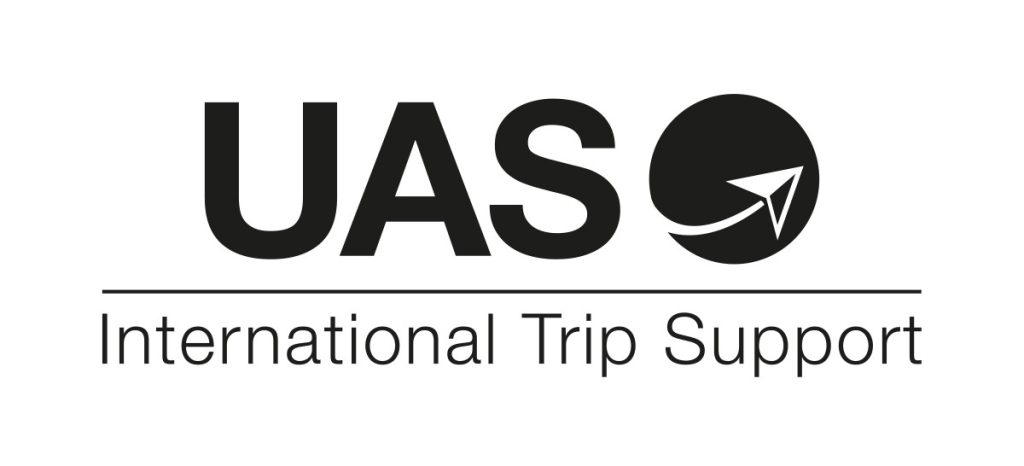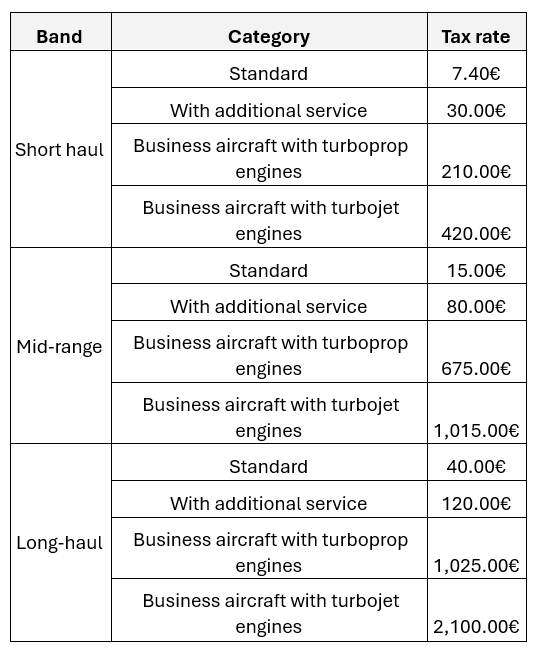U.S. business aviation operators planning trips to Europe in the coming months should be aware of operational regulations and indirect aviation taxes that may affect their operations. From new tariffs in France to ‘drop and go’ airports in popular tourist destinations, understanding these nuances can help ensure smooth, efficient travel across the continent.

Congested Airports
Some European airports, particularly gateway airports for popular tourist destinations, have introduced drop and go systems as they have limited or no parking available for private jets. At these airports, which include Santorini International Airport (LGSR), Ibiza Airport (LEIB), Mykonos Airport (LGMK) and Naples Airport (LIRN), passengers must be dropped off and the aircraft must depart. This is to manage air traffic and reduce congestion at high-demand airports, especially during peak travel times.
For U.S. operators planning to fly into such airports, it’s crucial to understand the restrictions. The aircraft must depart after passenger drop-off, often within a limited window. No parking is allowed, so a swift turnaround is essential. Operators must also coordinate with local authorities and ground handlers to ensure that they comply with regulations and have the proper arrangements in place for swift arrivals and departures.
Similarly, operators will require slots at Athens Airport for the summer season (March 30 – October 26). Application can only be made seven days in advance and turnarounds will be limited to two hours. Therefore, operators must be sure to plan well in advance and stay flexible to ensure successful European operations.
Other congested airports during the summer period include Nice Côte d’Azur Airport (LFMN), Cannes-Mandelieu Airport (LFMD), St. Tropez La Môle Airport (LFTZ), Malta International Airport (LMML) and Corsica Airport (LFKF). Operators can expect restrictions on parking and layovers at these airports, with exemptions for diplomatic or state flights.
French Solidarity Tax
One of the primary impacts for commercial operators is the newly implemented French increase in the Solidarity Tax effective March 1. The tax is charged per chargeable passenger based on the updated destination bands and travel categories. The number of destination bands has increased from two to three. They are:
- Short haul: Airports within the European Economic Area (EEA) and countries whose capital’s main airport is less than 1,000 km from Charles de Gaulle Airport (e.g., UK, Switzerland).
- Mid-range: Airports in territories or states that do not fall under Short-haul or Long-haul categories.
- Long-haul: Airports in countries whose capital’s main airport is more than 5,500 km from Charles de Gaulle Airport.
The rates are as follows:

Similarly, the number of tax categories has doubled from two to four. They are as follows:
- Standard: Applies when the service does not fall under categories 2, 3, or 4.
- With Additional Service: Applies when the service does not fall under categories 3 or 4, and at least one flight segment includes onboard services available only at a surcharge.
- Business Aircraft with Turboprop Engines: Applies to non-scheduled flights operated with a turboprop aircraft configured for 19 passengers or fewer.
- Business Aircraft with Turbojet Engines: Applies to non-scheduled flights operated with a turbojet aircraft configured for 19 passengers or fewer.
These tariffs can increase costs for operators and should be factored into budgeting and flight planning. It’s also crucial to check with your trip support partner for the latest updates, as tariffs and associated fees can vary by airport.

For information on key regulations impacting operators in 2025, check out this UAS blog. Key Global Regulations Aviators Need to Know in 2025 – UAS International Trip Support
Regulations and operational procedures in Europe can be baffling for U.S. business aviation operators planning trips to the continent. Not only is the pace of regulatory changes fast, but there is often a lot of misinformation circulating. This is why it’s crucial to liaise with your trusted trip support partner to get solid advice on your compliance requirements.